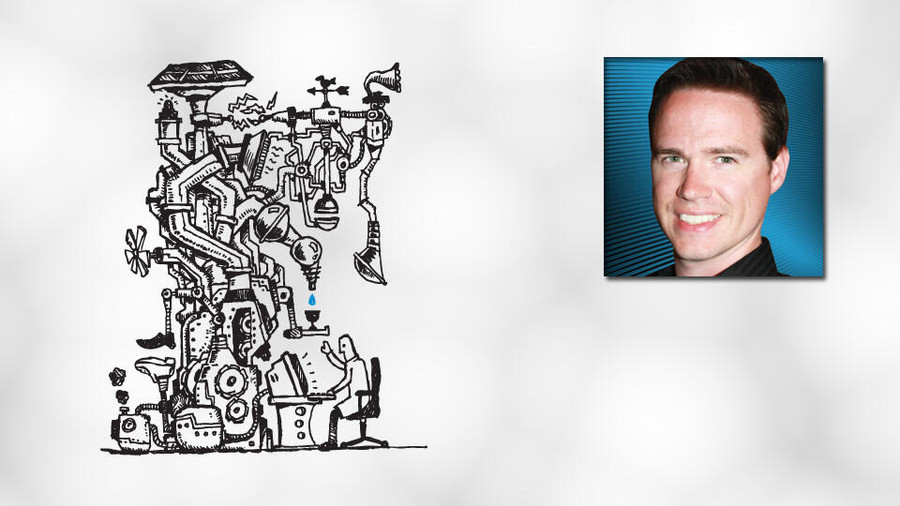So, you want to be an entrepreneur — probably because you want to make more money than you do now. After all, TV shows such as “Shark Tank” and “Dragon’s Den” have popularized self-made millionaires, as well as the thrill of raising money … or being laughed out of the room.
According to Guidant Financial, the top reasons people start their own company are: Simply “ready” to run their own business (26%), wanting to pursue their passion (23%), the opportunity presented itself (19%), fed up with corporate America (12%) and laid off (6%), with a major life event like divorce or death coming in at 3%, presumably because “life is too short.”
Many of our most damaging behaviors and habits are things we fall into because we are trying to fit in or impress others.
Everyone wants freedom, of course, and while many dream about success, money and lavish travels, the fantasy of starting a business to achieve that goal often brings with it tough realities. The businesses that do get built become jobs that are even harder than the jobs we had to begin with, with more responsibility. As a result, many who “start up” actually strike out because they buy themselves a grueling experience.
CHASING APPROVAL AND FEEDING ILLUSIONS
We all emulate people we respect and admire, from parents and friends to celebrities appearing in advertisements. It’s called mimetic modeling, and it is the reason why influencer marketing works so well — and why the FCC requiring disclosure of compensation makes those pitches less effective. Yet some of the behaviors we emulate can make us profoundly unhappy.
Think about it. Many of our most damaging behaviors and habits are things we fall into because we are trying to fit in or impress others. We go to a club and pay hundreds or even thousands of dollars to pop bottles at a prime table so people think we’re cool. We post only our “best selves” on Facebook for likes and approval, because the people on our friend lists are our mimetic models. We even smoke and drink because of the people around us; why do you think it’s called “social drinking”? This is also why the news and social media have been able to polarize groups of people so effectively; we look to those we respect for cues to what we should believe, even when it is not true.
DISTINGUISHING FANTASY FROM REALITY
The desire to “keep up with the Joneses” is a variation on the same dynamic. Big houses, fancy cars and new clothes are status symbols not because of their innate value but due to how others perceive their value. The negative consequence of coveting such things is often a mountain of debt, but if you just become successful and wealthy enough with your own company, you can afford to have it all ... or at least that’s the fantasy.
To simplify, we only think we want certain things because we have learned to want them. When pursuing such things conflicts with our true desires, it causes deep strife and unhappiness, though we may not understand why.
You can sometimes see this internal conflict correct itself when someone goes through a significant life event, like a divorce or the death of a loved one. Suddenly life feels short, and people re-examine their own lives.
WHY PEOPLE REALLY START BUSINESSES
Unlike what you see on TV, most businesses never receive venture capital or acquire investors outside of family, friends and the entrepreneurs themselves. Despite the popular narrative of the “courageous visionary founder,” about half of startups are founded out of necessity, by unemployed people just trying to survive rather than by savvy opportunists seeking “the next big thing.” If you want to see an example of that kind of necessity, I recommend watching the movie, “The Pursuit of Happyness.”
Some business founders have no other option, and some start companies because they want to solve big problems and change the world. The rest of us do it for the money and to have the life we think we want. The rewards for those who succeed can be fantastic, but few are tremendously successful. For many, pursuing entrepreneurial success can lead to desperate striving, like the gambler at the craps table who just wants one more throw.
THE TRUTH ABOUT GOING FROM ZERO TO HERO
Starting your own business and being successful long-term has little to do with what your company sells. Most prospective business owners think they’ll spend most of their time working on the product or service they sell. But for a business to be successful, the founder needs to hire people, systematize processes and focus on the management of the company itself, making decisions and managing cash flow. And of course, there will be coffee. Lots of coffee. The problem is that even if they know how to make a killer product or deliver a valuable service, most people who want to work for themselves don’t know how to run a company.
So if you are interested in starting your own business, great. But make sure you’re doing it for the right reasons and know what you’re getting into. Because the fairy-tale version you see on TV is barely showing you the tip of the iceberg.
Juicy Jay is the CEO and founder of the JuicyAds advertising network, as well as the founder of Broker.xxx, which helps people buy and sell adult websites and businesses. He also provides executive consulting, business strategy and marketing services at Consulting.xxx.






